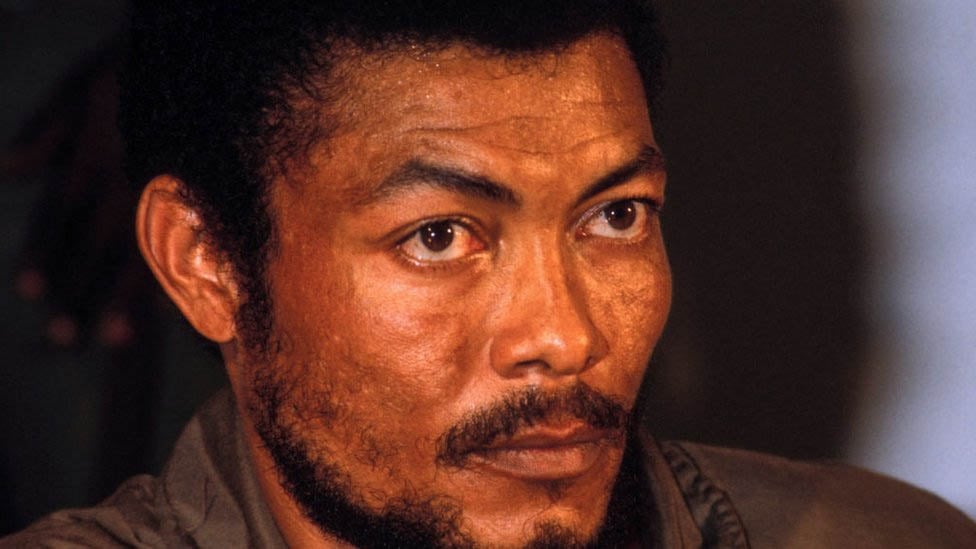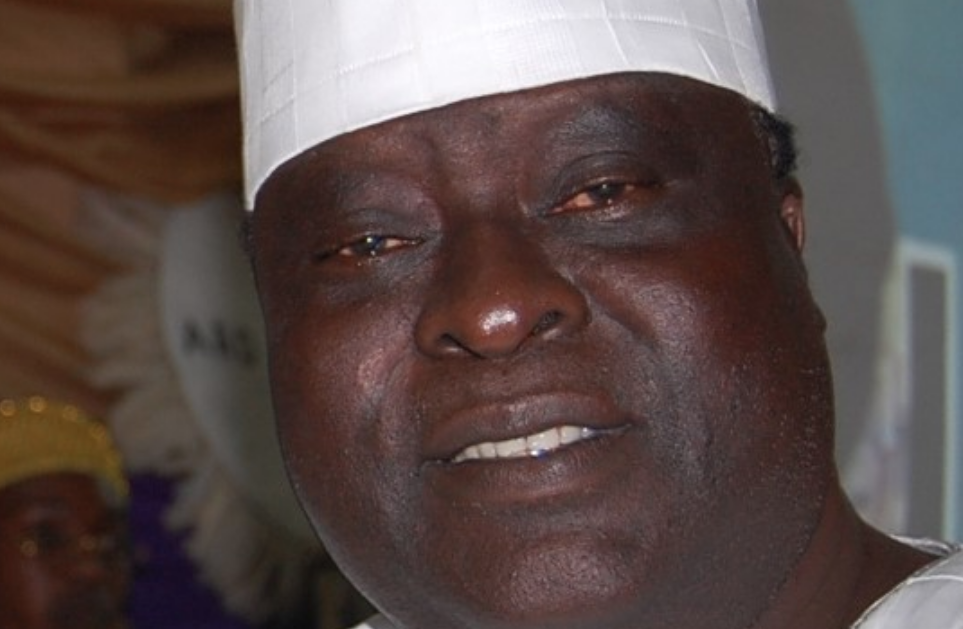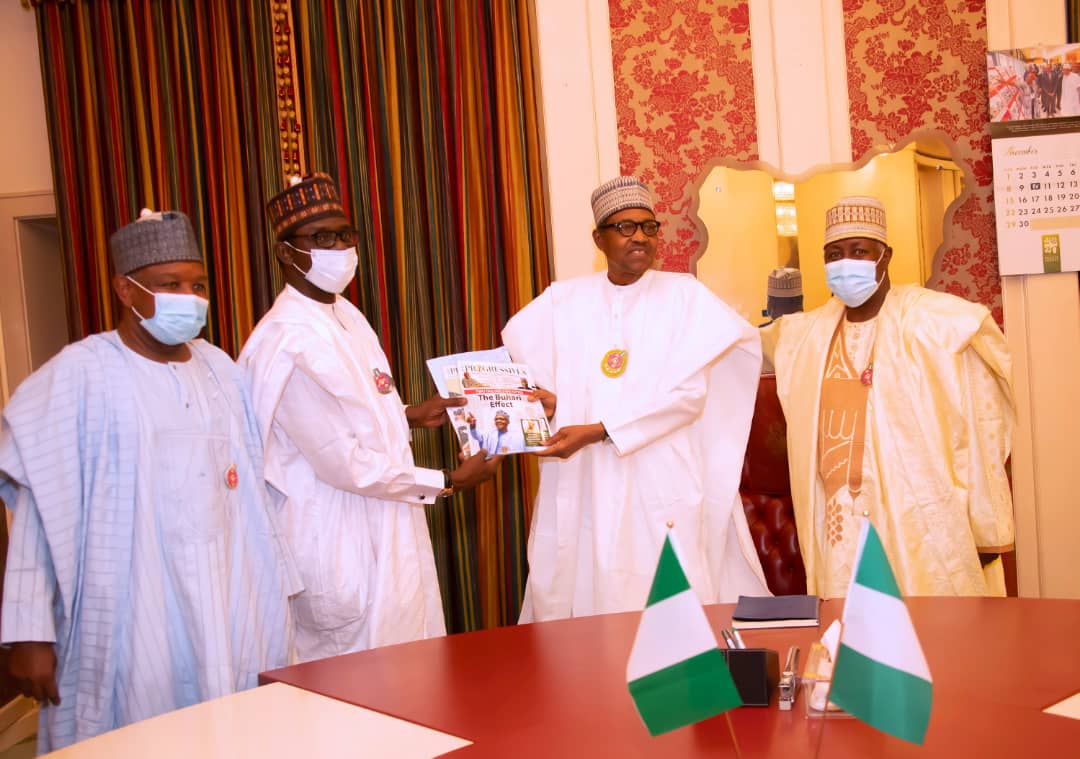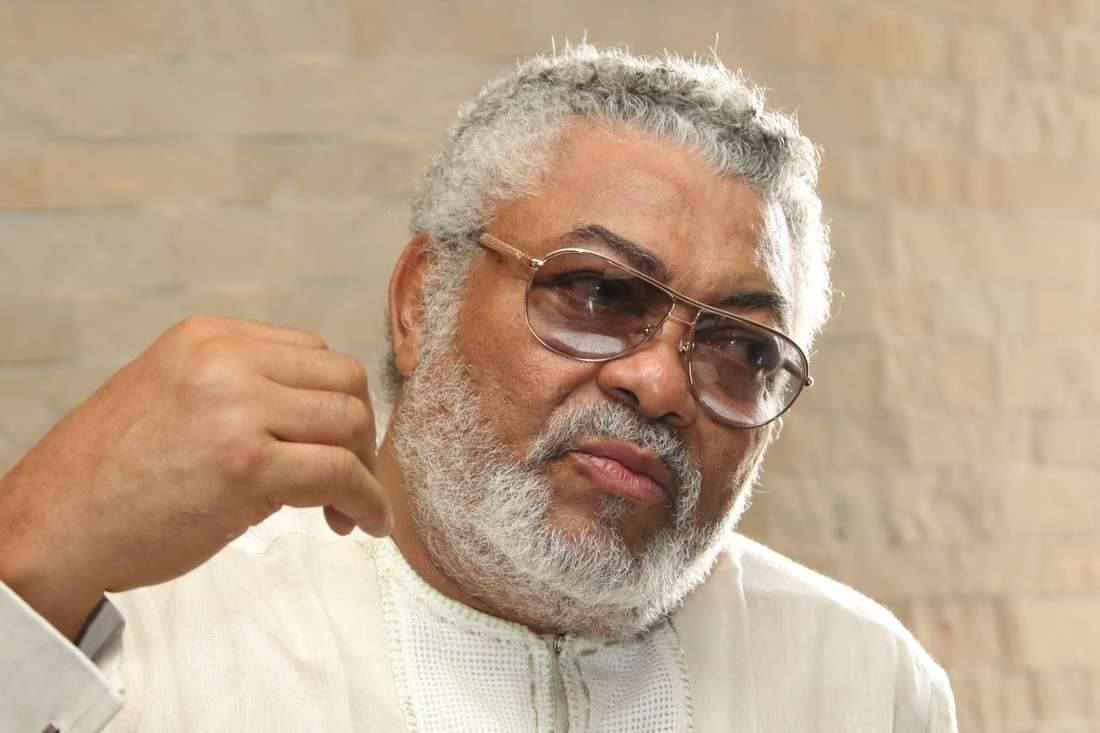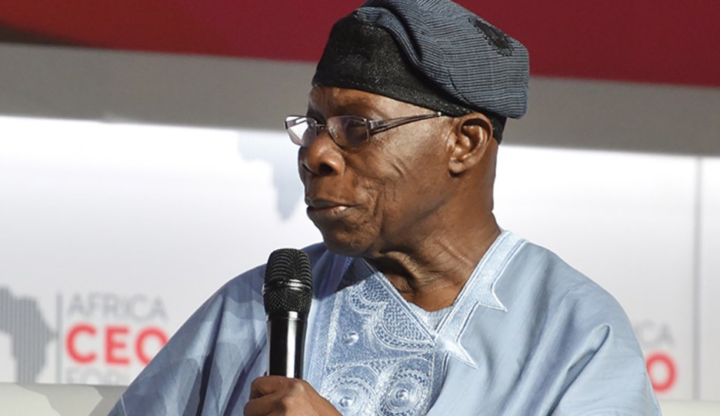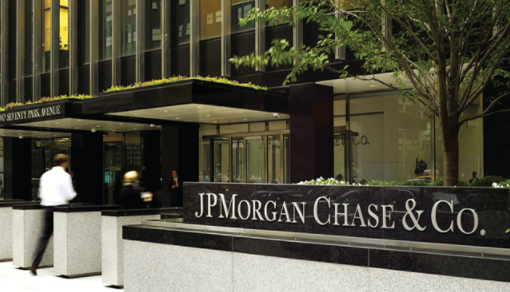“Our politicians need the Rawlings treatment!”
If you ever wondered what some Nigerian activists and commentators meant by that, here is a clue: it is not a medical treatment. It is not a pedicure either.
On June 4, 1979, a group of soldiers smuggled Jerry John Rawlings, a flight lieutenant in the Ghana Air Force, out of prison — where he was awaiting execution for a failed coup — and announced the overthrow of Fred Akuffo, the military head of state.
Rawlings, a junior officer, went on to rule for just 112 days before handing over power to a democratically elected government.
Advertisement
By then, though, he had executed, by firing squad, eight military officers, including three former heads of state — Akwasi Afrifa, Ignatius Kutu Acheampong and Akuffo — for “corruption”. Keeping them alive, he argued, meant they would continue to destabilise and corrupt the system because of their influence.
For a long time, the agitation in Nigerian radical circles — where Rawlings was held in high esteem — was that the “corrupt” Nigerian political class needed to undergo “the Rawlings treatment” if the country would ever move forward.
Nigeria is now a democracy and military coups are increasingly a thing of the past, but Rawlings is still held in high esteem among those who supported his “revolutionary” stint in the country’s West African neighbours.
Advertisement
All Rawlings ever wanted to do was tackle corruption.
VOWED TO CLEAN UP CORRUPTION
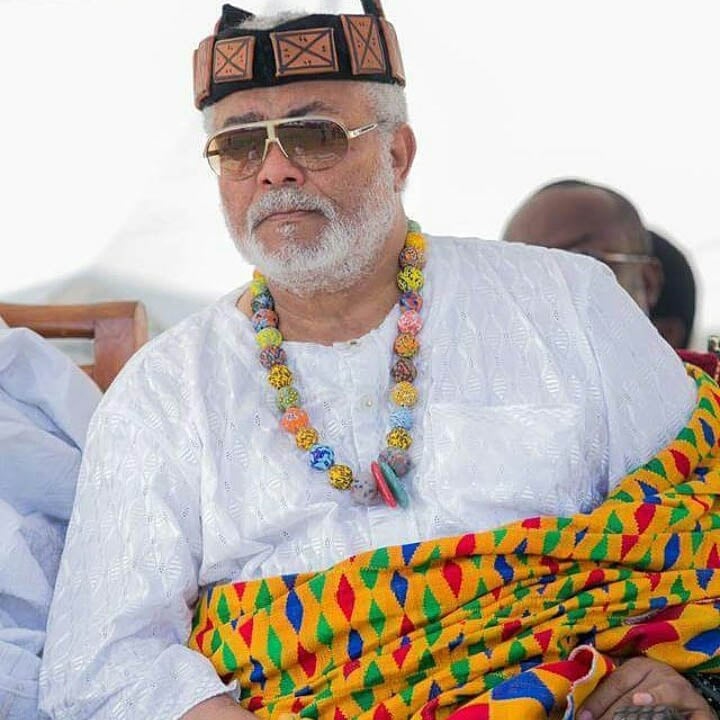
Restless, Rawlings was back again in December 1981, less than three years after, with another coup to kick out Limann, whom he accused of allowing corruption to fester.
“They were a pack of criminals who bled Ghana to the bone,” said Rawlings in a broadcast on Accra Radio, January 1, 1982.
”I am prepared at this moment to face a firing squad if what I try to do for the second time in my life does not meet the approval of Ghanaians,” he continued, adding that his team would ”clean up corruption. By God or the Devil.”
Advertisement
For him, it was nothing more than to re-organise Ghana.
Rawlings remained in office for 11 years, and then transmuted into a democratically elected president in January 1993 on the platform of the National Democratic Congress (NDC), a political party he founded. He served as president for two terms of eight years, and bowed out in January 2001.
‘GHANA SO CORRUPT… AFTER WE LEFT OFFICE’
The expectation of any good leader is to see a consolidation on the legacy left behind. But Rawlings seemed not to have been impressed with the way the affairs of the country had been managed by his successors. In a 2016 interview, the former president expressed shock at how his country was now being whitewashed.
“Not too long after I left office, I was giving a talk in Tanzanian and I said the world was going to see an exponential growth of terrorism. I had left office and the western media and western governments were desperately whitewashing the image of Ghana in spite of the atrocities and the corruption that was going on in my country after we had left office,” he said.
Advertisement
“Ghana had become a captive state, being whitewashed. You see how they orchestrate things? This is what I want you to wake up to. Now, it might interest you to know that, while they were whitewashing, making these claims and things were also falling apart, as late as just a few months ago, BBC now claims that terrorism had risen by 84%, creating a false impression at that time. This is the power of the Western media.”
‘ABACHA WAS PATRIOTIC’
In what many Nigerians would see as an irony, Rawlings — who became popular across the sub Saharan Africa for his stance against corruption — described Sani Abacha, Nigeria’s late military ruler, as a patriot.
Advertisement
Abacha reportedly embezzled an estimated sum of $3 billion, stashed in foreign banks and up until 2020, the country is still recovering the sum. However, Rawlings maintained a good relationship with Abacha who was Nigeria’s head of state from 1993 to 1998, the years Rawlings also held sway in Ghana.
In an interview, Rawlings, wondering why Abacha was “caught up in such practices”, said he was nonetheless Nigeria’s saviour.
Advertisement
“But he was one hell of a nationalist and very patriotic. Abacha saved the country. Some of you may not know this. But I also had my fingers on things,” he said.
“Some may not want to hear it. But the departure of that gentleman called Abiola, the one who passed away, saved Nigeria from a probable explosion. Shonekan couldn’t handle the situation and Abacha stepped in. There is also something else we shouldn’t lose sight of. When I am talking about the possibility of an explosion, it’s about the circumstances and the personalities involved. Abiola plus Shonekan (who was a man of integrity) could not even be seen to hold it.”
Advertisement
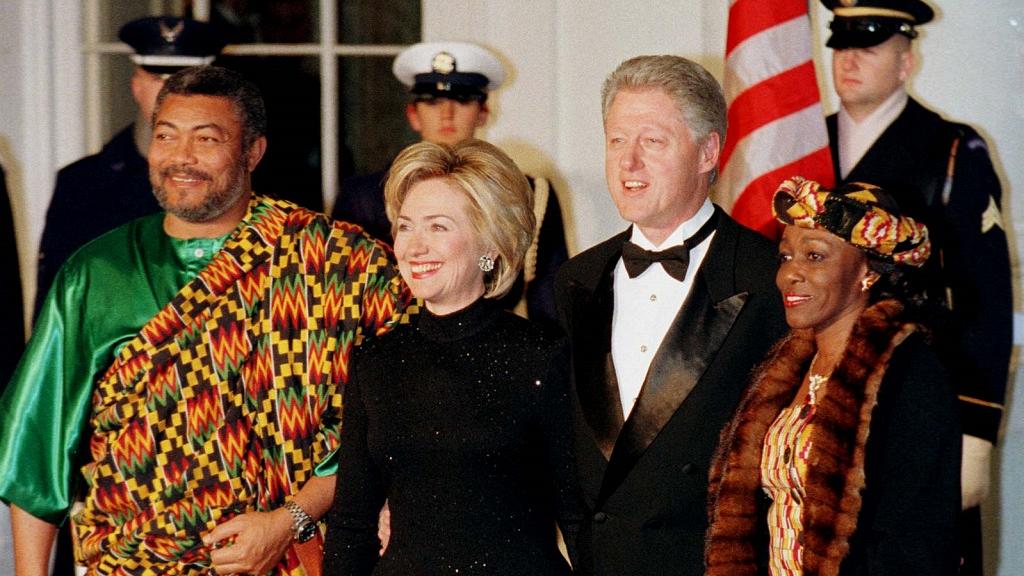
He argued that, at the time, Nigeria needed retired generals who cannot be intimidated by the military, and that was “how come characters like Obasanjo could come back or for that matter, this gentleman, President Buhari, who cannot be intimidated by the military. It has its value, but I think it is a transition that we are all going through or you are going through.”
THE $2MILLION FROM ABACHA
In July 2016, Rawlings drew the ire of many Nigerians when he admitted that he received $2 million from Abacha. The former Ghana president said he collected $2 million from Abacha when Ghana needed funds for “constitutional activities”.
“We were preparing for constitutional rule. We needed funds for some activities, and we got contributions from few places, The interesting thing is that I never went to, or asked Abacha for any contribution. And this is something that impressed me about the man. I didn’t ask him for a penny. But he obviously understood certain situations, our situation, and graciously sent me a small suitcase of money,” he told The Guardian.
His decision to collect money from Abacha angered many Nigerians, who viewed him as the anti-corruption hero of the West Africa region, following his role in the execution of corrupt leaders in Ghana. Some even asked him to return the money given to him by Abacha.
SPOKE ABOUT THE #ENDSARS PROTESTS
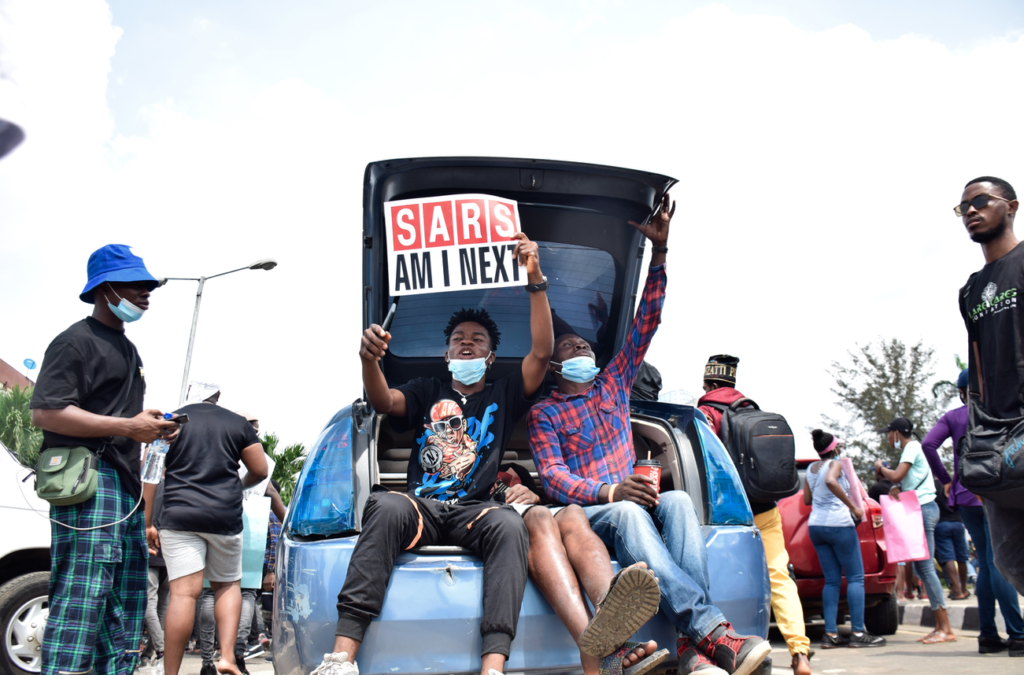
Rawlings showed interest in Nigeria till his last days. During last month’s protest against police brutality, his voice was not missing. One day after the shooting incident at Lekki toll gate in Lagos, the ex-Ghanaian president was among those who called for restraint on the part of the authorities.
Soldiers had been deployed in the Lekki toll gate where they forcefully dispersed protesters.
In a tweet, the deceased had said: “My heart goes out to #Nigeria and #Nigerians and I encourage all to move towards non-violent engagement. All conscientious citizens of Africa must condemn the bloodshed and call on all parties to act with integrity…”
My heart goes out to #Nigeria and #Nigerians and I encourage all to move towards non-violent engagement. All conscientious citizens of Africa must condemn the bloodshed and call on all parties to act with integrity… pic.twitter.com/0rzcu0kZQk
— Jerry John Rawlings (@officeofJJR) October 21, 2020
LEFT OFFICE CASHLESS
Rare that an African leader, especially one who had served almost two decades, wouldn’t have been tempted to amass wealth to himself. Mostly accused of sit-tightism syndrome, these leaders rather than develop their countries move huge amounts of money and assets overseas for themselves.
But speaking at a conference in September, 2019, Rawlings said he and Konadu, his wife, left the state house without having a dollar in their account. In fact, he would claim that not until 2001 after leaving office that he opened a foreign account.
“How many of you would believe that after 19 years in office, my wife and I left, we did not have one dollar in any foreign or local account. In the first place we didn’t own a foreign account then. We only did after we left office,” he said.
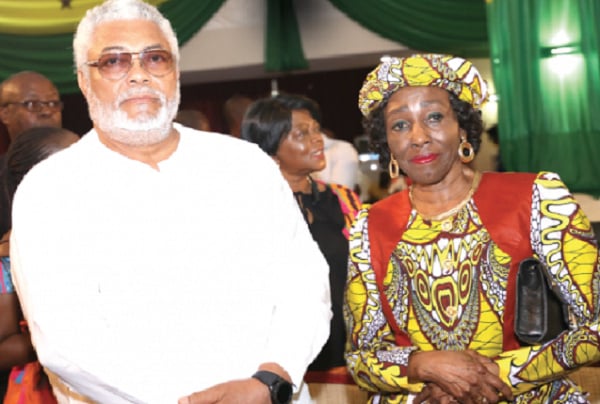
“My wife and I opened a foreign account at the urging of former United Nations General Secretary, Kofi Annan. He told me he will need me to help in the UN anti AIDS campaign and once in while the UN will pay me some allowance.”
He added that the foreign bank account was no longer functional following the closure of the programme for which it was opened.
In the 2016 interview, he had also explained how “money was not my thing.”
While acknowledging Ghana financial status, he said his government worked day and night to make sure they put the country on a solid foundation for economic explosion.
“We had our pride and our dignity was not out for sale,” he said.
“I recall that in the early days I didn’t have any money in the account and somebody gave me a million dollar cheque. I just threw it on the workshop table. Eight years later, one of our comrades reminded me about the cheque and said we would need the money for something and I asked him to go look for it.”
TOOK A BOW AFTER MOTHER’S EXIT
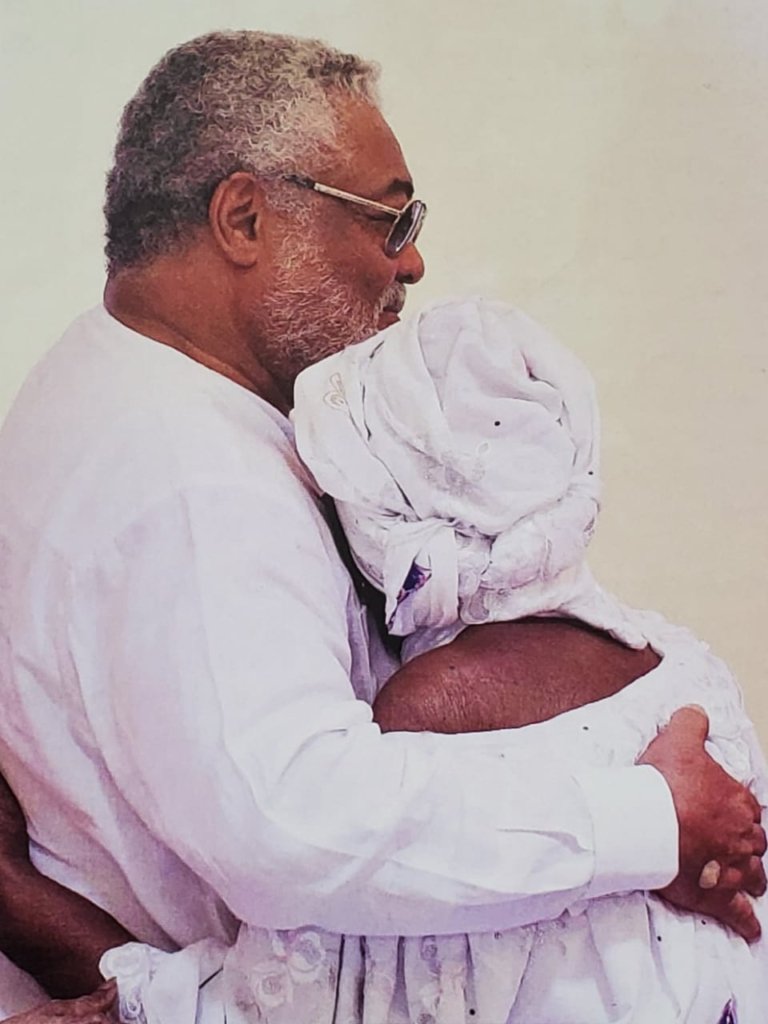
There is an African prayer that children should not die before their parents.
In the case of Rawlings, this was exactly the case, as he crossed to the great beyond six weeks after the death of his mother who passed away at the age of 101.
During her funeral in October, Rawlings went down memory lane, recalling some of the outstanding moments with his adored mother. In a glowing tribute, he said: “My mother was tough and determined and never stopped threatening the use of the rod. She was fearless and had the most amazing work ethic.
“She believed that the devil found use of the idle hand, so kept herself and those around her busy at all times.”
Rawlings said his mother laid the foundation for him to give off his best when he became a pilot in the No. 4 Squadron of the Ghana Air Force.
In his days at Achimota School, he recounted occasions she came to visit him but met his absence because he had gone to the Achimota Forest to enjoy the tranquillity of nature.
“…as I headed back through the arboretum, I could see her standing in front of Guggisberg House wagging her finger at some poor student who was unfamiliar with her temperament. Invariably she was leaving a warning of some sort behind for me.”
The former president reminisced his mother’s encounter with Otumfuo Osei Tutu Agyeman-Prempe, a prominent monarch, at the state house where she used to work as a baker.
“When I went to visit her at the State House, I heard her yelling at someone. I followed her voice round the building till I arrived on the scene to witness my mother standing in the garden, rebuking someone on the balcony at the top of her voice,” he said.
“I looked up, and it was none other than Otumfuo Osei Tutu Agyeman-Prempeh II, the then Asantehene (of blessed memory) who had asked for salt from a junior staff member contrary to his strict dietary requirements. Naturally, he turned away and went into his room when he saw the shocked expression on my face.
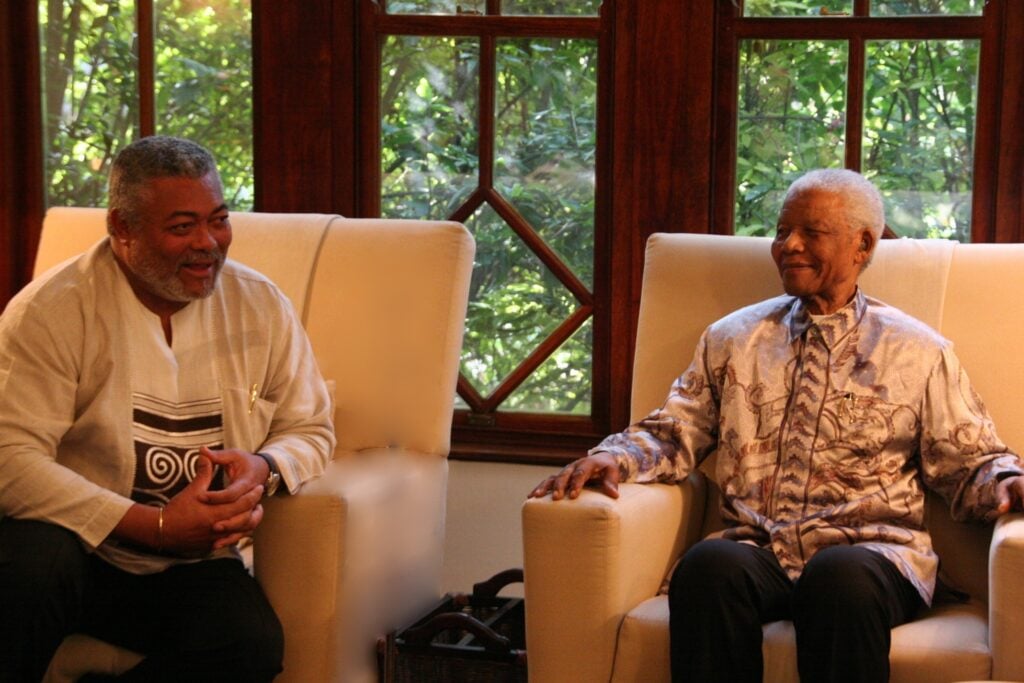
“Auntie Vic was talking to this great King as if he was her son! She was fearless with little regard for political correctness.”
TheCable understands that after the burial on October 24, 2020, Rawlings began to exhibit COVID-19 symptoms and was taken to the Korle Bu Teaching Hospital in Accra on Saturday.
His conditions did not improve as he was said to also have underlying ailments.
He died on Thursday morning at 10:10am.
Born June 22, 1947 in Accra, Ghana to a Scottish father and a Ghanaian mother, Rawlings was educated at Achimoto College and the military academy at Teshie. He was commissioned a second lieutenant in the Ghanaian Air Force in 1969 and became a flight-lieutenant and expert pilot, with special skill in aerobatics.
Rawlings, a respected elder statesman in Ghana and across Africa, is survived by four children – three daughters – Zanetor, Yaa Asantewaa and Amina – and Kimathi, a son.
Add a comment

